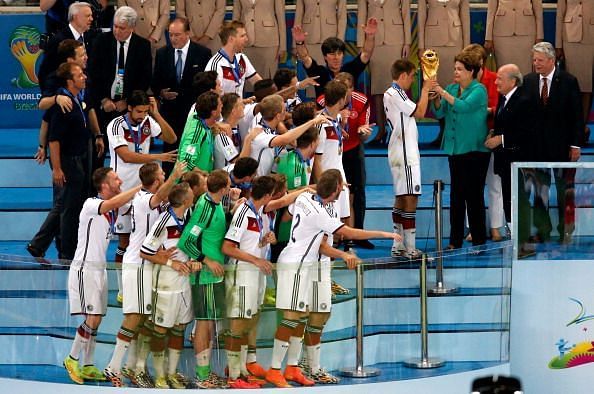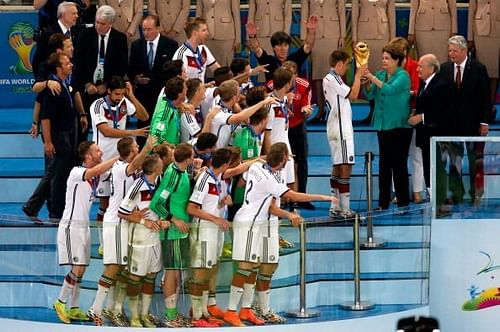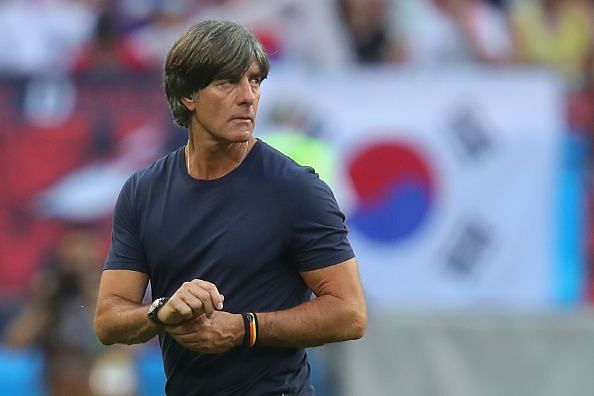
German football stands at a dangerous low

After the all-German Champions League final in 2013 between Bayern Munich and Borussia Dortmund, the World Cup triumph of the national team in 2014 and the 2017 Confederations Cup as well as the Under-21 EURO successes with "B teams" in both competitions, German football recently looked to be at an incredible high.
Yet, especially these last titles seemed to blind the leadership of the country's top clubs as well and that of the national association to the trouble that was ahead.
The coaching staff around the senior national team admitted in a press conference after the historic failure that occurred at the 2018 World Cup in Russia, that they did not see it coming. They thought that continuing to play the same possession-oriented style that got them the world title four years earlier, would continue to bring them success.
The end result was the first group stage exit at a World Cup in German football history. Due to the lack of a suitable alternative, Joachim Löw was allowed to keep his job as national team coach. Last fall, his team was then relegated from League A of the newly-created UEFA Nations League, after they finished last in their group with France and the Netherlands.
Now with the qualifying campaign for EURO 2020 about to begin, Löw seems desperate and in need of making drastic changes almost just for the sake of making them. Last week he announced that he would go without the services of veteran trio Jerome Boateng, Thomas Müller and Mats Hummels.

While there certainly are football reasons to justify not picking those three players for the upcoming internationals, saying that he will never pick them again could turn out to be a big mistake from the tactician - one which he could regret in the future.
In any case, now that German clubs could easily miss out of being represented in the quarterfinals of either UEFA club competition for the first time in ages, German football is in a deep crisis.